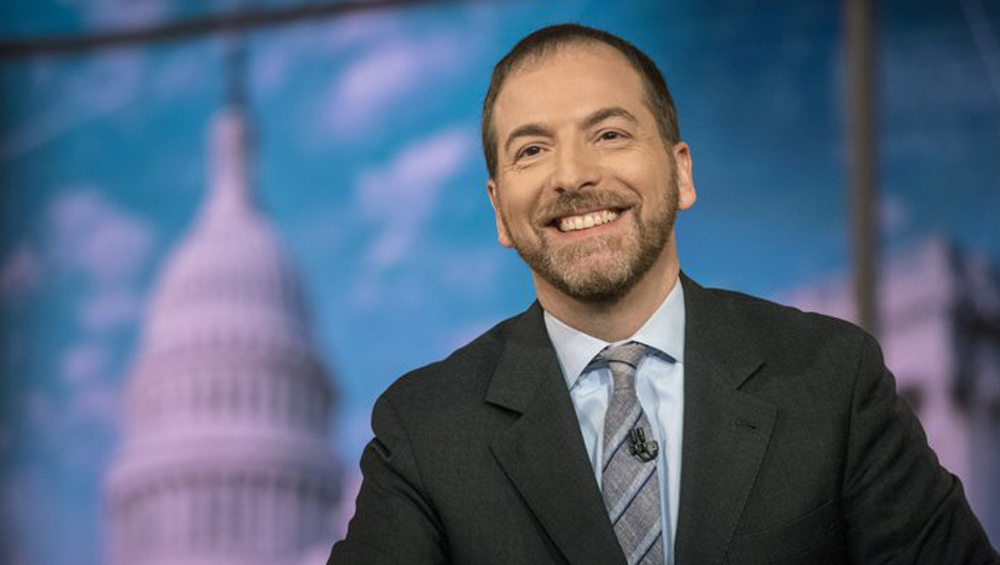
‘Meet The Press’ To Examine Disinformation

NEW YORK (AP) — A special “Meet the Press” episode on disinformation in politics was in the works even before host Chuck Todd’s interviews with two Republican senators made its pertinence clear.
The deep dive, reminiscent of last December’s hour on climate change, is scheduled for Dec. 29. Marty Baron and Dean Baquet, executive editors of The Washington Post and The New York Times, are scheduled to be interviewed.
“I’m not going to pretend to have the answers,” Todd said in an interview. “This is a spotlight. I hope my guests have good ideas. This to me is about sounding the alarm.”
Todd’s interviews with Sen. John Kennedy of Louisiana (Dec. 1) and Sen. Ted Cruz of Texas (Dec. 8) both grew contentious when the senators discussed disproven claims of Ukrainian interference in the 2016 U. S. election. Intelligence officials have said Russia has been trying to spread these stories to take attention away from its own efforts.
Todd offered an incredulous “you do?” when Cruz said he believed Ukraine had tried to influence the election, and asked Kennedy whether he was concerned he’d been duped by Russia.
The interviews made Todd a target for Republican critics, including the nation’s twitterer-in-chief, President Donald Trump, who has given Todd his own derogatory nickname.
“It’s designed to make me more uncomfortable doing my job,” Todd said. “Let me put it this way. I probably let it get to me a lot a year ago.”
The challenge in covering the Trump administration was obvious from its third day, when presidential counselor Kellyanne Conway used the term “alternative facts” in a discussion with Todd about attendance at Trump’s inauguration. Todd said he tries to take the long view, reasoning his performance will be best judged years from now.
“I’m not kidding, I lose sleep over this at night,” he said. “I lose sleep. Let’s be honest, it’s been miserable covering this story. When you have to fight about what the set of facts are, it’s ridiculous. The fact that we’re here is just so intellectually dishonest, and is so frustrating.”
The post-Christmas “Meet the Press” will look at how an untrue story emerges and is spread throughout the media ecosystem, as well as examine how Russia perfected its own propaganda campaigns before spreading them to other countries.
Todd himself was subject to criticism for discussing Ukraine in his interviews with Kennedy and Cruz. Stories spread only when given oxygen, and he strapped on the tank.
“This is the dilemma of the, quote, ‘big lie,’” he said. “In order to explain why the big lie is a lie, you have to repeat the lie in some form or another. I am very mindful of this.”
But he’s not knowingly putting someone on the air to spread misinformation, he said.
The media has its responsibilities for enforcing the truth; one clear, unresolved issue is different standards for monitoring truthful statements in advertisements on television and social media. Young people need to learn media literacy. But public leaders will ultimately have to take a stand for the truth, he said.
As for his own role, talk to him again in five years.
































Comments (1)
RustbeltAlumnus2 says:
December 20, 2019 at 8:50 am
Kellyanne Conway did not invent the term “alternative facts” (nor did Trump). This ancient concept has been taught in law schools because legal scholars acknowledge that opposing evidence can both compete as facts. Two eyewitnesses solely view the same event and can have opposing reports with neither lying about it. (Kellyanne was merely using her legal training and was roasted for it.) Similarly, two bona fide experts, one cherrypicked by Fox and another cherrypicked by CNN, can weigh in with opposing conclusions, based on facts (not opinion) framed in different ways and report alternative facts with neither lying about it. The problem is not that fake news exists or does not exist. The problem is believing that there can only be a single truth. Most facts rest on an underlying premise. If the premise is disputed then the fact is disputed (no matter how many scientists sign a petition). The truth is messy. Like beauty, it remains in the eye of the beholder.